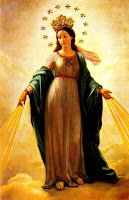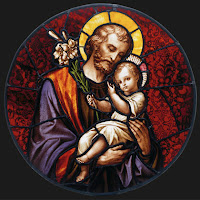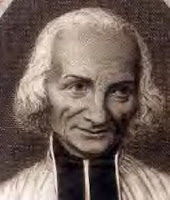The
feast of Christ the King celebrates the dominion of Christ over all the affairs
of man. In our times, many civil governments undermine the kingship of the Lord
by invoking the separation of Church and State. In the modern times, we have
taken this principle as gospel truth. However, it might surprise you to know
that this principle of separation of Church and State was among the modern
errors condemned by Blessed Pope Pius IX in 1852. It is wrong to think that
“the State, as being the origin and source of all rights, is endowed with a
certain right not circumscribed by any limit” (1862). Yes, there are 2
recognizable earthly powers: “one of natural origins which provides for secular
affairs and the tranquility of human society and the other of supernatural
origin…which has been instituted for the sake of souls and of eternal
salvation” (Pius IX, Etsi Multa, 21
November 1873). On account of this, we “give to Caesar what is Caesar’s and to
God what is God’s”. However, it should not be forgotten that Caesar “is smaller
than heaven.” Pope Leo XIII taught that “justice…and reason forbid the State to
be godless” (Leo XIII, Libertas). The
State is always subject to the authority of Christ because “Jesus Christ is the
faithful witness, the firstborn of the dead and the ruler of the kings of the
earth.” The prophet Daniel speaks of Christ as the Son of Man who “received
dominion, glory, and kingship; all peoples, nations, and languages serve him.
His dominion is an everlasting dominion that shall not be taken away and his
kingship shall not be destroyed.”
It
is easy to undermine the authority of Christ as Pilate did in the gospel. When
he asked: “I am not a Jew, am I?” he must have thought of himself as beyond the
jurisdiction of Christ’s kingship. After all, “your own nation and the chief
priests handed you over to me,” he said to Jesus. It is easy for the civil
governments to undermine the authority of Christ and of his Church. In fact,
civil governments have time and again stripped the Church of her temporal
powers. Today, laws that openly oppose the teachings of the gospel are being
enacted. Of the candidates running for the presidency, how many of them are
actually willing to submit to the authority of Christ and the Church? It is
easy to undermine the authority of Christ because he himself said: “My kingdom
does not belong to the world. If my kingdom did belong to this world, my
attendants would be fighting to keep me from being handed over to the Jews.”
But let not civil governments bask in their power for one day, Christ’s kingdom
shall manifest itself in its full glory. Christ’s kingdom is already here. The
Church is the beginning of Christ’s kingdom. But one day, it will come in its
fullness: “Behold, he is coming amid the clouds, and every eye will see him,
even those who pierced him. All the peoples of the earth will lament him. Yes.
Amen.” This is the truth which he invites all to recognize. To listen to the
Church is to listen to his voice. To listen to his voice is to belong to his
kingdom. “States and nations are called to acknowledge the right of the
Catholic Church …to decide what favors or hinders our most real life…It belongs
to the Church as the sole divinely-appointed Guardian of the whole Moral law,
natural and revealed.” (Leo XIII, Immortale
Dei) “Everyone who belongs to the truth listens to my voice.”
O
Mary conceived without sin, pray for us who have recourse to thee.















